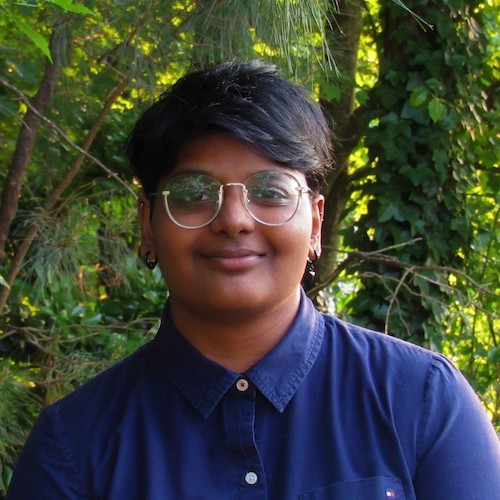Center for Machine Learning and Health
2025 Fellowships in Digital Health Innovation- Sensing and Public Health
Meet the 2025 CMLH Fellows in Digital Health Innovation- Sensing and Public Health

Yidan Ding is a Ph.D. student in the Biomedical Engineering Department, advised by Trustee Professor Bin He. Her research develops noninvasive brain-computer interfaces (BCIs) for naturalistic and dexterous robotic control. The current project focuses on an fMRI-informed EEG-BCI technique enhanced by generative AI. This approach aims to improve real-time finger movement decoding performance by integrating EEG's portability and temporal resolution with fMRI's spatial precision. The ultimate goal is to provide finger-level robotic assistance and rehabilitation, particularly in stroke patients. Yidan earned her bachelor of science in mechanical engineering from Purdue University before joining Carnegie Mellon University.
Fellowship Research: “Generative AI-Enhanced Noninvasive Brain-Computer Interface Integrating EEG and fMRI for Finger-Level Robotic Assistance in Stroke Patients”

Xiang Li is a Ph.D. student in the Department of Electrical and Computer Engineering, advised by Professor Maysam Chamanzar. His research focuses on novel devices for electrophysiological sensing with applications in neuroscience and clinical usages. He is developing a wearable, room-temperature magnetoencephalography (MEG) system to enable high-resolution measurements across multiple brain regions. Using expertise in semiconductor physics, nanofabrication and experimental biomedical engineering, his work aims to advance the diagnosis and rehabilitation of neurological disorders. He received his bachelor's degree from the Hong Kong University of Science and Technology and a master’s degree from Carnegie Mellon.
Fellowship Research: “Wearable Magnetoencephalography Device for Diagnosis and Rehabilitation of Neurological Disorders Using Ultra-Sensitive Room-Temperature Quantum Sensing”

Kavya Puthuveetil is a Ph.D. student in the Robotics Institute advised by Assistant Professor Zackory Erickson and Professor Reid Simmons. She has broad research interests in topics related to healthcare and assistive robotics, including deformable manipulation, multimodal sensing and support technologies for older adults. In her most recent work, she is developing a wearable system for activity monitoring and habit tracking that could be used by older adults and their care network to pick up on early signs of cognitive decline. Kavya received her bachelor's degree in biomedical engineering at Virginia Commonwealth University.
Fellowship Research: "Activity Recognition and Anomaly Detection via Egocentric Depth Sensing for Health Monitoring With Older Adults"

Jiangyifei Zhu is a Ph.D. student in the Electrical and Computer Engineering Department, advised by Professor Justin Chan and Professor Swarun Kumar. His research focuses on long-term health monitoring through wireless sensing technologies and machine learning. He is passionate about leveraging ubiquitous sensing to bridge the gap between traditional in-clinic examinations and continuous, in-home health monitoring. His work contributes to advancing future health sensing systems, enabling long-term, comfortable and nonintrusive health tracking. Currently, he is developing a novel radar sensing system designed to assess cardiovascular health. He earned his bachelor’s degree in computer science from the University of Massachusetts Amherst and his master’s degree in electrical and computer engineering from Carnegie Mellon.
Fellowship Research: “Contactless Cardiovascular Health Monitoring Using AI-Enabled mmWave Radars”
